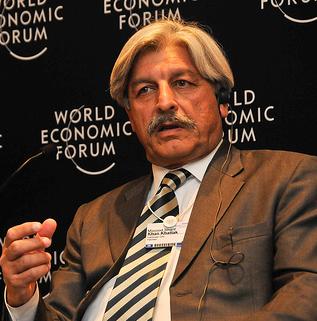It is incomprehensible that any modern state can be at peace within itself and with the world at large without an organized structure that is dedicated to ensuring the security of that state. Unfortunately, Pakistan seems to be an exception. This is not surprising for a country where even the Constitution works on a suspended and/or provisional basis with amendments made by individuals in their drawing rooms duly authorized by the Supreme Court. Piecemeal solutions as opposed to far reaching decisions in the sphere of national security can only spell disaster.
Pakistan now needs a national security council to do all this professionally. This council must be meant for the purpose of national security alone and must operate under the chief executive of the country in an advisory capacity with its eyes on the multiple aspects directly related to the dynamics of national security. The national security council being proposed must not be for the purpose of confronting/counter-balancing any other organ of the state.
Gen Musharraf formed a farcical NSC through the National Security Council Act of April 2004. With the president at its head it comprised of the prime minister, chairman Senate, speaker National Assembly, leader of the opposition, the four chief ministers, the chairman Joint Chiefs of Staff Committee and the army, navy and air force chiefs. Musharraf chose Tariq Aziz, a life long income tax officer and his political broker, as a full time secretary of the NSC. This non professional appointment spoke volumes about how non-serious Gen Musharraf was about Pakistan’s national security.
Ever since 9/11 Pakistan has been confronted with immense national security situations. All this time there was no organized body that could keep the Pakistani decision makers ahead of events and suggest well crafted solutions. It was Gen Musharraf alone who decided upon Pakistan’s responses to those national security situations from the confines of the Army House that he still illegally occupies. At best, he had Lilliputian inputs from the sycophants surrounding him in the evenings. It is sad that Pakistan was, over the past nine years, ruled by such an average individual as Gen Musharraf who did not consider it fit to benefit from the collective wisdom of the highest political, civil and military hierarchy. It is sad that this hierarchy also chose to remain slavish and did not stand up to get counted for Pakistan.
Having said that I will hasten to try and make out a case that if any country in the world today actually needs an effective national security council it is Pakistan. A belligerent India on the east, a war torn and occupied Afghanistan on the west, militancy throughout the country’s northwest as well as Balochistan, terrorist acts and suicide attacks all over the country, sectarian killings, sporadic outbursts of violence in Karachi, dacoits ruling the highways of Sindh, political turmoil in the country, a judicial crisis that refuses to fade away and an economic situation that shows no signs of improvement are reasons enough for Pakistan to have a national security council that concentrates on how Pakistan’s national security can best be improved and then maintained.
Pakistan presently has a Defence Council of the Cabinet (DCC) which is chaired by the prime minister. The DCC is actually a high ranking forum where matters regarding production and procurement of defence equipment and other defence matters are discussed and decisions taken. The DCC is not designed to cater for Pakistan’s national security on a day to day basis in which inputs to the chief executive on matters related to Pakistan’s national security are essential so that some crucial decisions can be taken before things go astray. The DCC should act as a body that meets on a regular basis in order to get a briefing from the national security council so that a collective long term national security decision is taken and methodology for synchronised implementation decided upon. The left hand not knowing what the right hand holds attitude will now be harmful to Pakistan. Fiefdoms have to give way to national interests.
Pakistan has a very elaborate civilian and military intelligence network. The Pakistani military potential is truly awesome. An acknowledged nuclear military power, Pakistan has the sixth largest army in the world, a three dimensional navy, a modern air force and a very large standing civil armed force which together form Pakistan’s military potential to ensure its national security. When this military potential is coupled with other factors like economy, agricultural potential, industrial potential, communication infrastructure, ports and shipping, political stability, energy sector etc it adds up to become Pakistan’s overall power potential. By what Pakistan has it can be happily seen that Pakistan has an inviolable potential to ensure its own national security. But the sad part is that this potential has not been synchronized for the over all good of the country.
Presently, knee jerk actions are the order of the day. Developing crises must now be identified long before they occur with remedial measures being taken to nip adversities in the bud. For this there is a dire need for a coordinating body that can extract timely and good decisions from the chief executive based on professional inputs derived through an organized process. The one body that can do this is an effective national security council with a regular and well designed secretariat manned by thoroughbred and bold professionals. This is the need of the hour.
http://www.thenews.com.pk/editorial_detail.asp?id=165351
